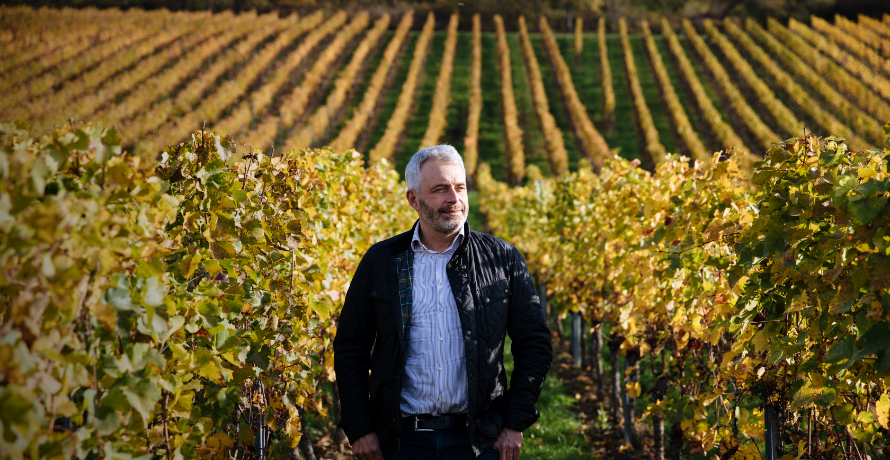The Gres winery looks back on a good 500 years of winemaking family-tradition. Originating from France the Gres family first moved to Burgundy (France) and later to Alsace (France). They ultimately came to Rheinhessen to found their vineyard existing to this day. Their vineyard in the Rhine Valley today cultivates about 70,000 vines on about 14 hectares of land around the municipality of Appenheim. However, their vines are located dispersed around five villages to use ideal sites and perfect conditions for each grape variety. Tapping into years of experience, they identified that vines thrive particularity well on humus-reich limestone soils.
A side typical grape varieties often found in Rheinhessen (Riesling, Grüner Silvaner, Huxelrebe, Dornfelder, etc.) and internationally successful grape varieties (Chardonnay, Sauvignon Blanc, Merlot, etc.), the Gres family wants to focus on their history, putting a special emphasis on wines of the Burgundy family (Pinot Blanc, Late Burgundy and Early Burgundy).
As a winery, Gres only processes grapes from their own vineyards, aiming to harvest grapes that are as fully ripe as possible and, if necessary, to accept a loss in volume by leaving the grapes hanging on the vine for a longer period of time in order to increase the must weight.
Some of the grapes are promptly removed in summer, in order to offer the grapes remaining on the vine, optimal growing conditions. This leads to characterful noble wines – with low yields. Not mass-produced, but fruity, elegant wines with a full taste, which are ideal as menu wine thanks to their subtile bouquet.

Various archeological finings from Appenheim and surroundings (clay pots, coins and wine jugs) indicate that the region was already inhabited during the Roman Empire. That means that wine was already being enjoyed in the region about 2000 years ago. Appenheim was first mentioned in a document in 882 A.C in the golden book of Prüm Abbey. However, the village is probably a little older and was founded between 500 A.C and 700 A.C during the period of the so-called Franconian Conquest.
Today Appenheim has about 1.500 residents. Various cycling and hiking trails are available for sportive activities or just for exploring the surroundings from a different perspective. Nature reserves such as the nearby Westerberg or the Rheinauen near Ingelheim or Bingen invites one for long walks.